Sharing On Facebook
Why do you do it, and what does it mean?
With over 2 billion active daily users, Facebook sees almost 5 billion shares of content daily, so it’s no secret that people like to post and share on the app. The question is, why do people like to share content so much? Is it because of their feeling when they get a like or comment? Do they want to promote something? Share information? And what can agencies do with the data they collect from your posts, posting habits, and online interactions in general? To understand and answer these questions, we first need to step back and think about what it means to “post” or “share” content online.
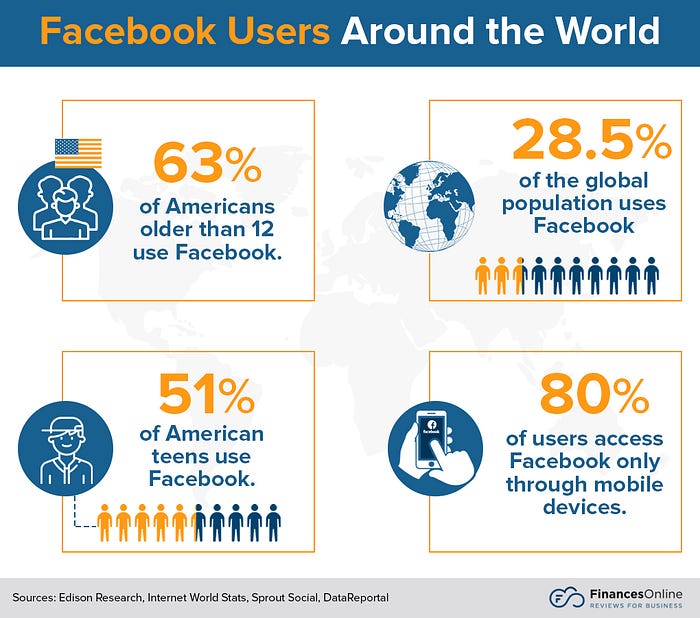
What exactly is posting?
Posting means publishing content (photos, stories, messages, links, etc.) to a page, whether personal, linked to a company, or another person’s. Although posting a photo with a short caption is different than posting a snippet of an article with a link to the whole story, pretty much every interaction on Facebook outside of private groups or messages is from a post of some variety.
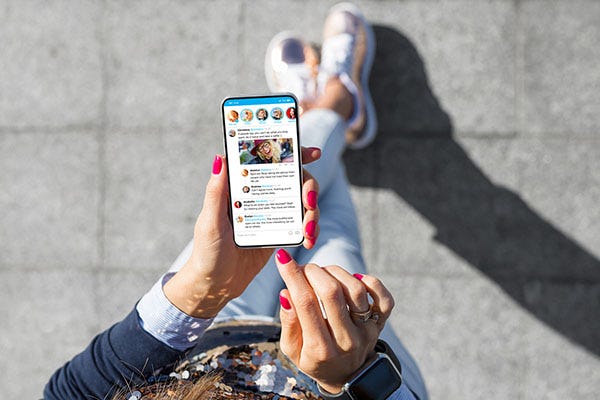
The information you choose to post online is out there for good once you release it, so it's essential to make sure you post things that don’t compromise your security or information. Still, we have a big question to answer. If posting can be dangerous and doesn’t provide users with much physical value, why do people still do it, and why do over 2 billion do it daily?
Why do people post?
There are many different reasons why people may choose to post or share content online, such as to build their outward appearance towards others, with over 68% of people saying they share on social media to communicate what they care about. Another reason people share content online is to entertain or inform, with an astounding 94% of people saying that is one of the reasons they use social media. However, the factor that stays the same throughout all the reasons people post online is their need for outward validation or justification.
We want to inform, amuse, and help the people in our lives, and that’s why 94% of people say they share on social media — The New York Times.
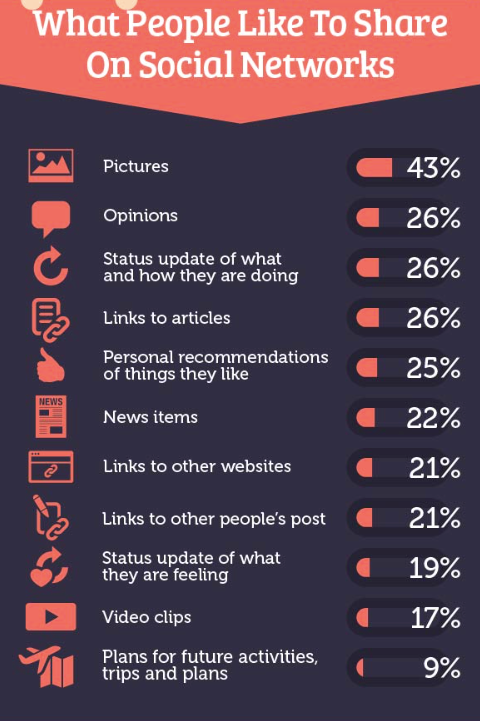
Whether it be through likes, compliments, or other forms of interaction, people post online because they want other’s approval. This isn’t necessarily a bad thing. Seeking attention or validation by posting or sharing online isn’t damaging as long as you keep sensitive information private and not get too personal online. Still, it is interesting to consider how much others can dictate someone’s habits and outward image.
Who can see your posts?
After you share or post something, whether public or private, you are no longer guaranteed that that information will stay only in the group you shared it with. Because of this, you should only post things that you would be comfortable with a random person seeing or learning about you, and make sure the information you release isn’t overly sensitive or personal.

Along with the data or information you say outright, there may be additional information people or companies can extract from your posts that you are unaware of. Things like geotags in photos or other documents/information you might not have noticed can be accessible in the content you share, making it more critical to know precisely what you are making public when you hit the post.
What information does posting release?
People can learn a lot about you from what you post online, and for some people, that can be their intention, but knowing how much is too much and what should be kept private is also very important. Things like habits can be inferred from some of your posts, while other things like your age, government name, and state can be found directly with certainty, depending on what information you release. For example, you may post yourself getting a drink from a coffee shop at around the same time every day, and although you may not think much of it, someone could find where the coffee shop is using metadata or other means and get a rough idea of when you might be there from your posts. Even though this is an extreme case, knowing exactly what information you are releasing and what people can do with it should cause you to think a little more before you post something online.
What are the benefits of posting on social media?
With almost 95% of people on social media saying they use it to inform or amuse people, posting does fulfill their goal of getting on the app. You can connect with people you otherwise might not be able to, a reason 78% of users say they use social media, and you can also meet new people with shared interests by looking at each other’s posts and seeing if you have hobbies or activities in common, which 73% of users say is one of the reasons they use social media.
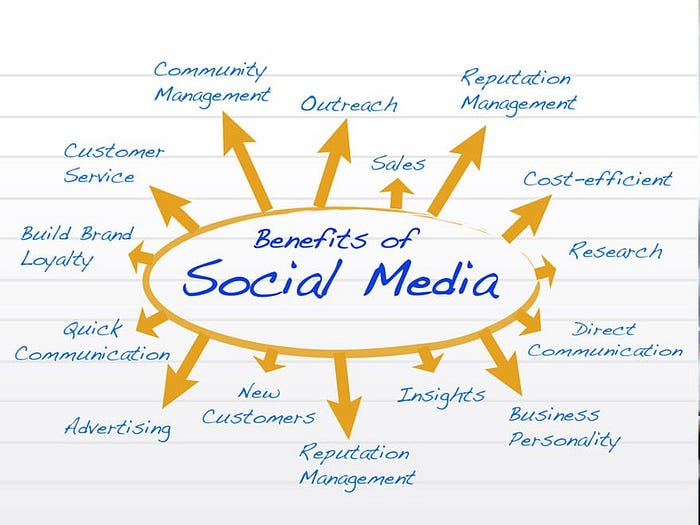
Along with this, people also use social media to get attention, validation, or fulfillment from others, which isn’t inherently wrong and can help boost confidence or self-esteem in a user. Depending on your following, you can also reach a large audience to spread the word about something you are passionate about or want to inform people of, such as a charity event or online sale, which can help the community and raise awareness for a cause/event.
What are the downsides of posting on social media?
The main downside to posting on social media is that once you put it online, there is no way to ensure it gets taken down or removed if you ever want it to be. There are so many different ways for people to save the information you released that once you put it out there, you can never take it back. Because of this, ensuring you never release sensitive information is super important because if you do, it can be out there for the rest of your life, and you will have no way of taking it off the internet.
Along with security risks, there are also social/emotional downsides that can come from posting on social media, such as online bullying or exclusion, with over 60% of kids having experienced some form of bullying online and 1/4 having experienced it on multiple occasions. Social media tends to create a space where people only show the highlights of their lives and can put people down who don’t meet their standards or fit in with the group's shared interests.
What makes a good post on social media?
As long as you are being respectful of what you post and mindful not to compromise any private or sensitive information, you are free to post whatever you want on social media as long as it adheres to the app’s guidelines. However, certain things set apart a good post from a lackluster one, such as the content you provide, the context you give, and the overall effect your post has on a viewer.
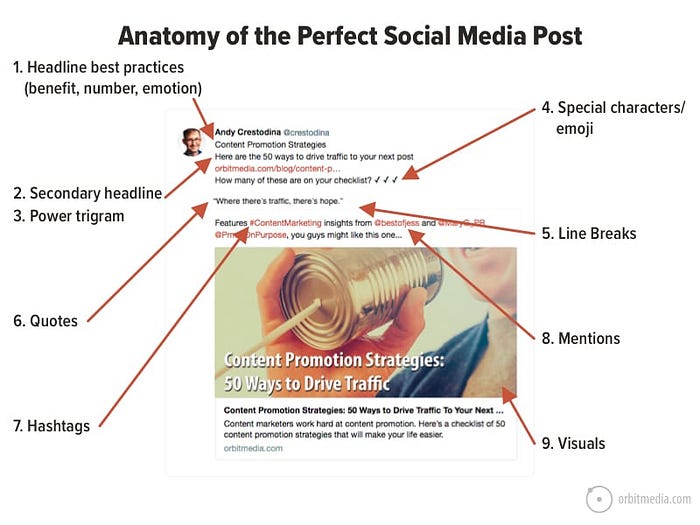
If you are posting about a vacation or outing with friends, you won’t be providing articles or resources and probably won’t be trying to inform people of an event or message. However, posts like these are often meant to serve as an update on what you are doing to friends and family, and when they view a post like this, they will get an idea of what is going on in your life, meaning the post affected the viewer the way you intended, which is what a good post should do. Good posts should achieve your goal when creating them, whether it be to promote a sale or talk about a current event, and there should be an inferable purpose behind your post that people can see, not just a random tangent or jumble of words with no meaning.
What makes a nasty post on social media?
The main thing people will talk about when discussing a post being wrong is the quality of its information or the impact of the information it provides. Suppose all you posted is a 10-word claim without evidence or reasoning or a low-quality photo of some random object. In that case, the information you put in your post doesn’t tell people anything and may be seen as useless or “bad”. Aside from this, the only thing that can make a nasty post on social media is a post that is dangerous to you or someone else, such as posting private information or something that goes against an app’s guidelines, like hate speech or bullying. However, as long as you post content with a purpose that isn’t harmful to anyone, your post shouldn’t be considered flawed by anybody.
Final Thoughts
People post content on social media for many different reasons, whether it be informing their distant friends or family what’s going on in their lives or reminding their co-workers about a meeting tomorrow, but making sure what you post serves a purpose and doesn’t jeopardize anybody’s safety and security is of utmost importance, primarily since once you post something online, you can never ensure it is gone for good. You should never feel pressured to post specific content or anything on social media, and you should be able to make your own informed decision on what to post if you choose to share anything.
